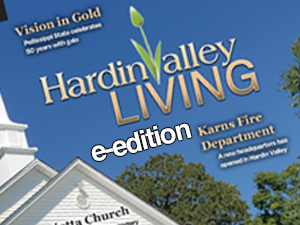Easter comes to Farragut
Concord UMC observes ‘seder’ Passover
They got together to light a candle, eat some bitter herbs and remember a night that happened more than 3,000 years ago.
About 200 members and guests at Concord United Methodist Church filled tables in the worship center on April 12.
The mission is to reflect on the roots of Christianity and retell the story of God delivering the Israelites from slavery in Egypt. The Passover story is in the Book of Exodus or the Shemot in the Hebrew Bible. Each year CUMC puts on a festive yet orderly “seder” meal, a custom that has been observed for millennia. The Hebrew word “seder” means “order,” or “arrangement,” and the crowd was instructed not to eat or drink anything until instructed.
“It may be an oxymoron, but welcome to our Christian Passover meal,” said Mike Stallings, CMUC pastor of worship and arts, who led the service with Glenna Manning, pastor of discipleship and outreach. “We will retain as much as possible of the Jewish observance. It also reminds us that Jesus was not a Christian, but a Jew.”
Each table selected a “youth” to read the part of a young man asking questions of his father, beginning with “Why is this night different from all other nights? On all other nights, we eat leavened bread and matzos [bread without yeast]. On all other nights, we eat all kinds of herbs; on this night, we eat only bitter herbs.”
“We were slaves in the land of Egypt …” responds an adult reader, “reduced to the state of beasts of burden — something far less than that for which the Lord God had created us in the beginning … In this dark hour … God acting through Moses, opposed Pharaoh, … and the Lord took us out of Egypt with a might hand … and with signs and wonders.”
The meal, prepared by church hostess Becky Bishop, started with flat matzo bread, horseradish and parsley — the bitter herb. But during the readings, it went on to include beef brisket, charocet [cooked apples], herbed potatoes, matzo bread and chocolate macaroons. The observance lasted about 90 minutes and
included the lighting of candles, dipping one’s fingers in a bowl
of water, raising glasses of wine [grape juice] in toasts, and remembering the plagues that God inflicted on Egypt [but not the Israelites] to convince Pharaoh to set the Israelites free, using blood, frogs, vermin, wild beasts, cattle disease, boils, hail, locusts, darkness and the death of the firstborn.
“It is the Passover sacrifice to the Lord, for he passed over the houses of the Israelites in Egypt, when he struck down the Egyptians, but spared our houses,” read a volunteer at each table. “So it was that after 430 years, the hosts of the Lord [the Israelites] went out from the land of Egypt … And Moses stretched out his hand over the sea … And the children of Israel walked over the bed of the sea, the Egyptians in pursuit.”


